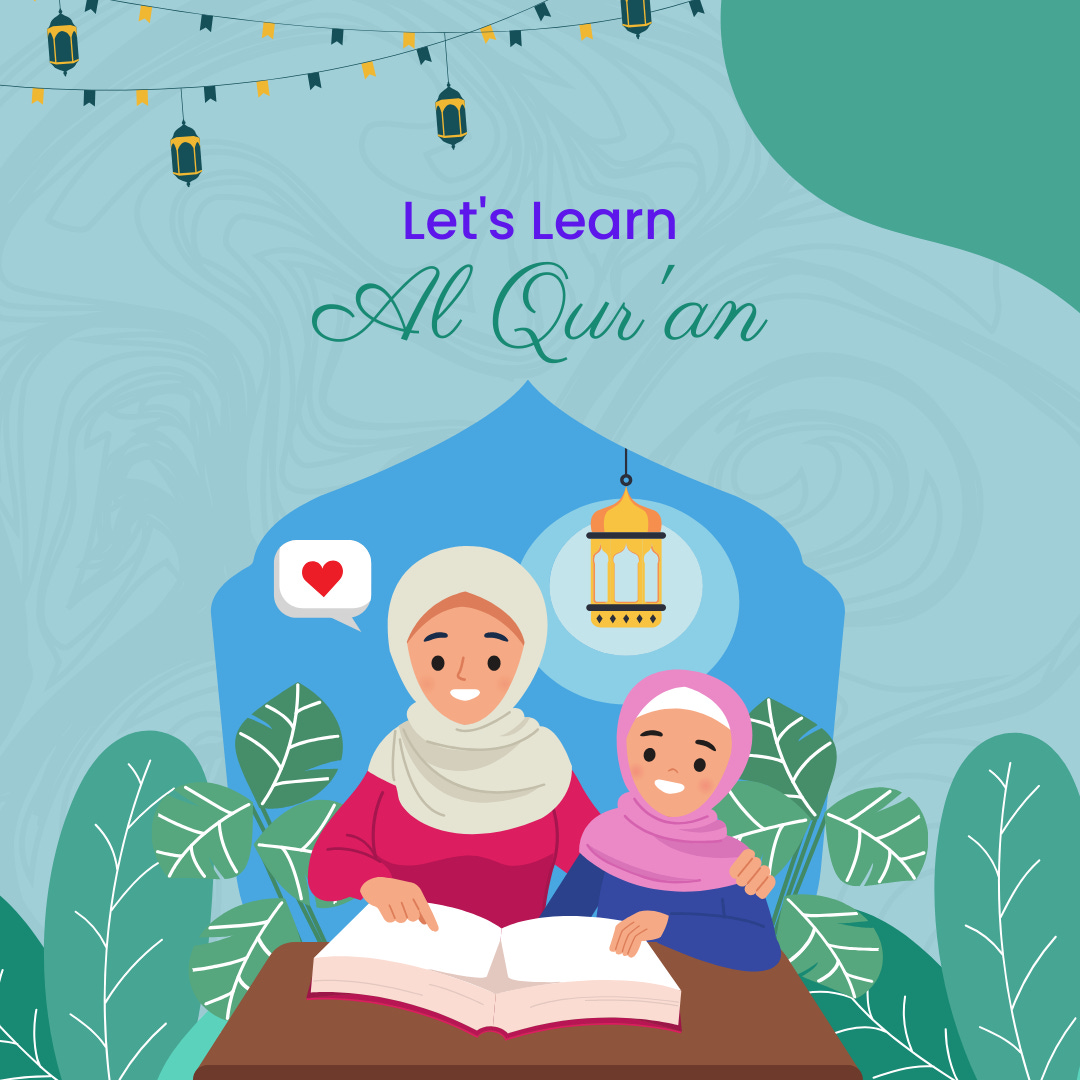One evening, I was practicing Surah Al-Mulk, revisiting it after learning more about proper pronunciation. My daughter, Sara, came and sat beside me. She's 7. She listens quietly, usually more interested in the rhythm than the meaning. But this time, she looked at me, eyes wide, and said, "Mama, why is your voice making me want to cry?" I stopped.
I didn’t know what to say. I hadn’t changed the words. But I had changed the delivery — aligning my mouth, tongue, lips, and throat to the rules passed down from the Prophet ﷺ through generations. Just by learning to recite the "ق" with proper heaviness, or elongating the madd in “’a-lladhī khalaqa,” something inside the words woke up. It wasn’t me. It was the Quran, finally speaking through me — not with mistakes, not muffled by foreign habits, but with clarity and soul.
That moment stayed with me for days. Not because Sara cried — children cry often — but because she couldn’t explain why. It wasn’t the meaning she grasped. It was something else. The way the words came alive. The emotion tucked between syllables. The rise and fall. The invisible pull of divine cadence.
That’s when it truly struck me: every language carries an emotional code — not just in the words, but in how those words are delivered.
In English, for example, imagine the difference between saying “I’m fine” with a sigh versus with a steady voice and eye contact. Same words. Entirely different meanings. One reveals exhaustion, the other resolve. The emotion is carried not just in vocabulary, but in voice, pacing, and expression. That’s how language becomes more than information — it becomes experience.
Now imagine Arabic — a language chosen by Allah Himself for the final revelation. Arabic doesn’t just carry meaning in its words; it stores emotion, weight, beauty, and complexity in each root, each sound, each pause.
So you see — when we recite the Quran, there are two deep oceans we are standing before:
The depth of the Quran itself — its message, its light, its timeless call to the soul.
The depth of the Arabic language — the sacred vessel Allah chose for that message.
When we lack understanding of either, we miss something essential. It's like having the words of a song but not the melody, or the melody but not the lyrics. To truly connect, you need both.
And Arabic — it’s not just any language. According to a linguistic study conducted by the University of California, Arabic is among the top five most complex languages in the world based on grammar richness, morphological variation, and semantic depth. While English has around 600,000 words (many of which are rarely used), Arabic has over 12 million recorded words and derivatives, making it the most lexically rich language according to a report published by Al Jazeera Arabic in 2016. That’s not just complexity — that’s divine design.
So why do we, Muslims of a fast-moving, highly educated world — the same people who dive deep into science, technology, business, and medicine — treat Quran learning like a side hobby?
When Allah will ask:
"With the intelligence and brilliance I gave you, how much of it did you spend to understand My message? To live it? To teach it?"
What will we say?
We prepare for job interviews, we study for years to understand human knowledge, but how much have we invested to understand the eternal knowledge sent by our Creator?
Let’s not wait to be embarrassed on the Day when the only currency will be our efforts.
If we truly love the Quran, we owe it our best — including the effort to learn its language. Not for fluency. But for connection. For depth. For Sara’s tears to make sense. For our hearts to finally hear what our tongues have been reciting.





I'm filming today, but this post made me want to stop and read Quran. Immediately. ☺️